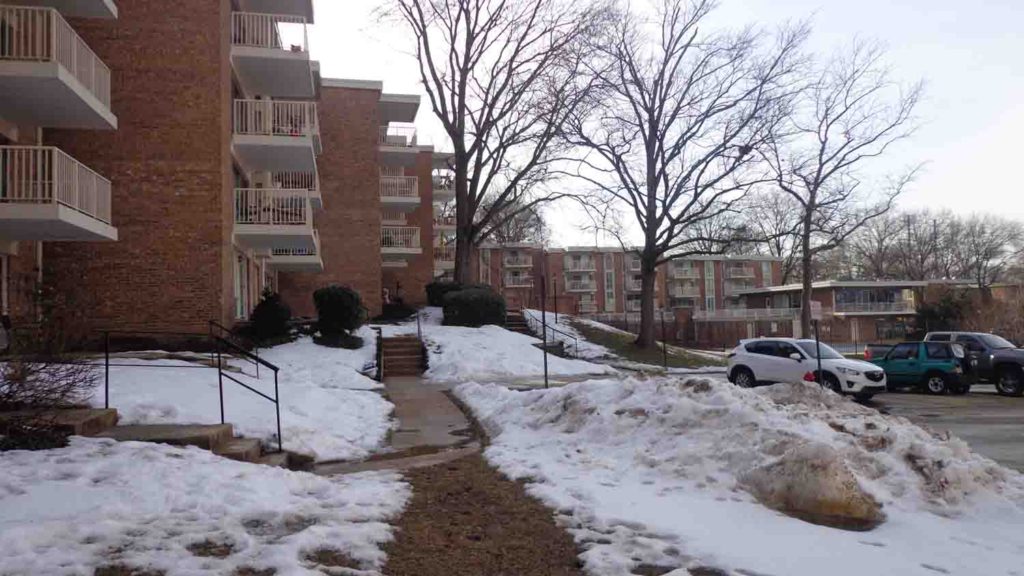
This is a continuation of my series entitled, Important considerations when buying a condominium unit. Part one ended with a discussion of the nuances and caveats of buying into condominium communities. This second part will talk about what can happen when condominium owners must finance common projects within their complex in emergency situations.
To start this discussion, I want to introduce a key financial term, the “Residential Assessment”. Residential assessments are basically lump sums of money every owner must pay which is typically the condominium fee. In some instances, based upon the community’s by laws and constitution, a residential assessment can also be mandated from every owner should a project need to be done affecting the entire complex under ‘emergency’ circumstances.
This was painfully revealed to me when the first of many assessments in my condominium community was due in the Fall of 2010, just after purchasing my unit. Clues that something was up were there before closing though. When visiting my prospective unit for the first time, and when going through the inspection process, a large project was underway requiring the excavation of the land around the foundation of my soon to be dwelling. As a first-time home buyer, it didn’t occur to me to press the seller about what was happening – ultimately a good thing for her.
The question did come up though. She simply said, “Oh it’s just some foundational work.” She didn’t say however that the entire building was sliding and shifting on its clay foundation, and that the entire project would result in an $8,500 assessment for me, my entire Obama Tax Credit. Needless to say, having to cough up $8,500 unexpectedly was a bitter feeling.
Truthfully, the information about this project may have been in the “Condo Docs” or condominium documents. They were a binder of documents (at least 300 pages) provided prior closing. Another piece of advice; take the time to flip through any information given to you about your property prior to purchasing it, especially if it’s in condominium community. In the real estate world, this is part of what’s called doing your ‘due diligence’. Why didn’t I take the time to read the documents? I’ll chalk it up to ignorance and being a novice to the home buying process.
In any case, having the $8,500 Obama tax Credit was a blessing as it saved me from having to take out a loan. In addition to the $8,500 assessment, there was a $1,600 assessment preceding it due to delinquent condominium fees from other owners throughout the complex. This all occurred just after the bursting of the 2008 housing bubble and the subsequent recession, so there were quite a few folks in the community who either lost their jobs, ran out of money, didn’t have enough money on hand, or both. Either way, the rest of us owners had to pick up the slack.
Since those first two assessments, there was another $8,500 assessment to help replace the old underground piping of our complex which seemed to break every winter like clockwork. The board of directors created a payment plan so that the payments could be spread out over three years. The installments would be paid with interest, while those who could make the payment at all once, would be charged no interest. Years later there was yet another $8,500 assessment to cover updates to our HVAC system. If this all sounds like a lot of money, it was.
So, what are the takeaway messages from this? Aside from the points Dave Ramsey made in part one of the series, they are as follows:
• No matter what type of real estate you decide to buy (a detached home, a townhouse or a condominium unit), budget so that you’re as debt-free as possible and so that you have extra money on hand (Dave Ramsey’s Emergency Fund of 3-6 months of expenses for example);
• When you buy into a condominium community, every owner’s destiny and finances are intermingled;
• Before you buy and piece of real estate, ask as many questions as you can of the seller, especially the obvious ones and;
• This last bullet comes from one of Suze Orman’s books. Before you buy into a condominium community, go as far as to hunt down the board of directors and ask questions. Try to figure the history of the community, its overall financial health and any additional issues it may be facing going forward.
Part three will conclude this series and discuss a key part of a condominium community; its board of directors, and the ongoing challenges my community is facing. Thank you for taking the time out to read this blog post. You might also enjoy:
• Are you getting your Matching Contribution? A discussion on saving for retirement
• A look at the Law of Compounding Interest and why you should care
• Your Net Worth, your Gross Salary, and what they mean
• Is the power in budgeting your money?
• I still don’t have a car in 2018: A story about playing financial chess
• We should’ve bought Facebook and Bitcoin stock: An investing story
If you’ve found value here and think it would benefit others, please share it and or leave comments. To receive all the most up to date content from the Big Words Blog Site, subscribe using the box in the right-hand column in this post and throughout the site, or add the link to my RSS feed to your feedreader. Please visit my YouTube channel entitled, Big Discussions76. Lastly follow me on Twitter at @BWArePowerful, on the Big Words Blog Site Facebook page, and on Instagram at @anwaryusef76. While my main areas of focus are Education, STEM, and Financial Literacy, there other blogs/sites I endorse which found on that particular page of my site.
